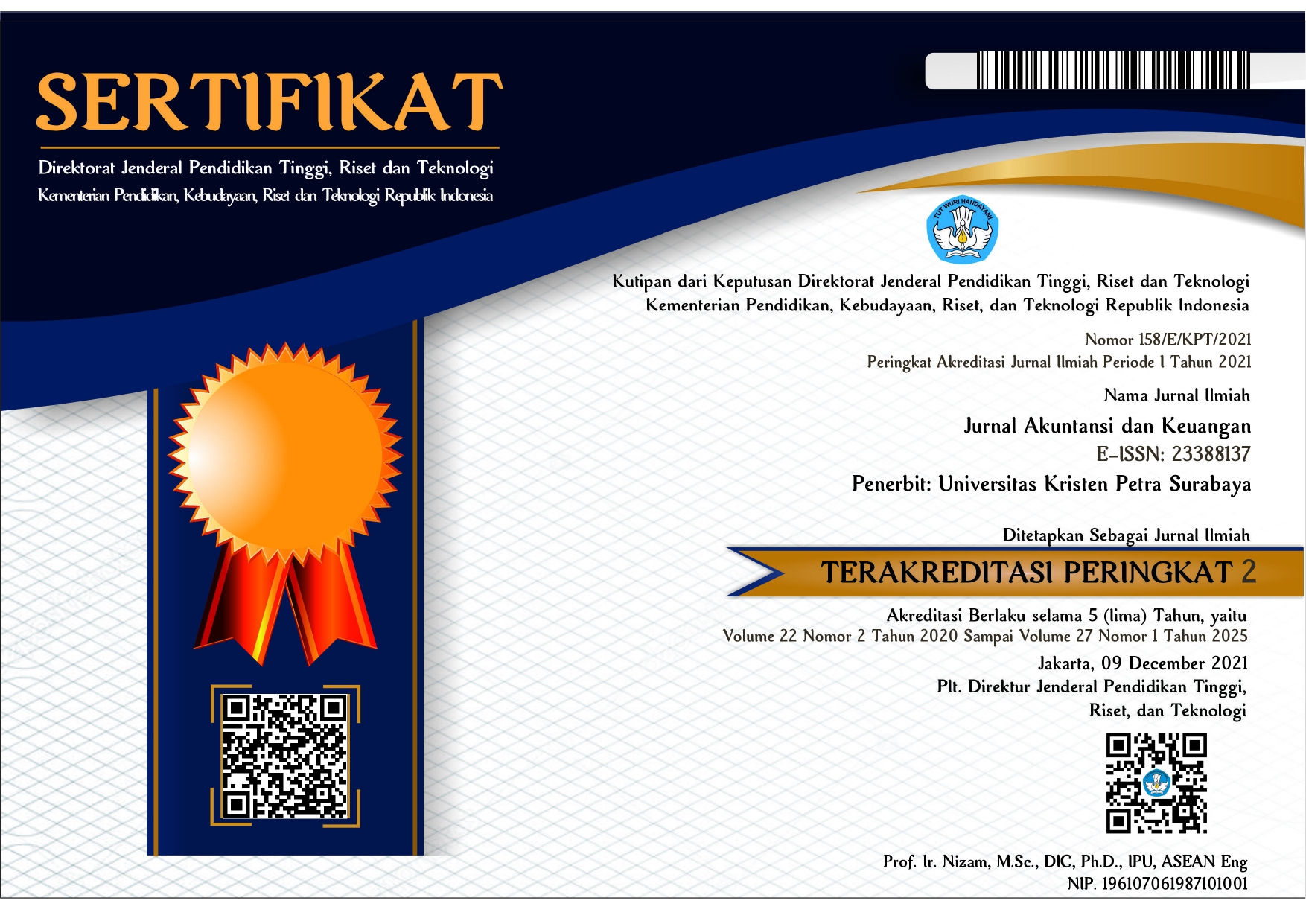Pemanfaatan Sistem Informasi dan Teknologi Informasi Pengaruhnya Terhadap Kinerja Individual Karyawan
DOI:
https://doi.org/10.9744/jak.14.1.56-68Keywords:
Information system, perceived usefulness, individual performanceAbstract
The aim of this study are, first to examine the influence of five predictor variables namely task-technology fit, perceived usefulness, complexity, facilitating conditions and anxiety computing on the performance of individual employees and second, to test the effect of expertise as a moderating variable to the performance of individual employees. The study was conducted in October 2010 toward 144 respondents, spread over nine rural banks in Palembang. The statistical tests employed in this research are regression analysis and moderated regression analysis (MRA). Results show that task-technology fit has a negative significant effect to the individual performance, meanwhile perception of usefulness and anxiety computing have a positive significant influence to the individual perfor¬mance. However, the rest variables that is complexity of variables and facilitating condition have no significant effect to the individual performance. Expertise as a moderating variable has a significant effect in relation between anxiety computing and the individual performance.Downloads
How to Cite
Lindawati, H., & Salamah, I. (2013). Pemanfaatan Sistem Informasi dan Teknologi Informasi Pengaruhnya Terhadap Kinerja Individual Karyawan. Jurnal Akuntansi Dan Keuangan, 14(1), 56–68. https://doi.org/10.9744/jak.14.1.56-68
Issue
Section
Articles
License
Authors who publish with this journal agree to the following terms:
- Authors retain the copyright and publishing right, and grant the journal right of first publication with the work simultaneously licensed under a Creative Commons Attribution License that allows others to share the work with an acknowledgement of the work's authorship and initial publication in this journal.
- Authors are able to enter into separate, additional contractual arrangements for the non-exclusive distribution of the journal's published version of the work (e.g., post it to an institutional repository or publish it in a book), with an acknowledgement of its initial publication in this journal.
- Authors are permitted and encouraged to post their work online (e.g., in institutional repositories or on their website) followingthe publication of the article, as it can lead to productive exchanges, as well as earlier and greater citation of published work (See The Effect of Open Access).<a href="http://creativecommons.org/lice














